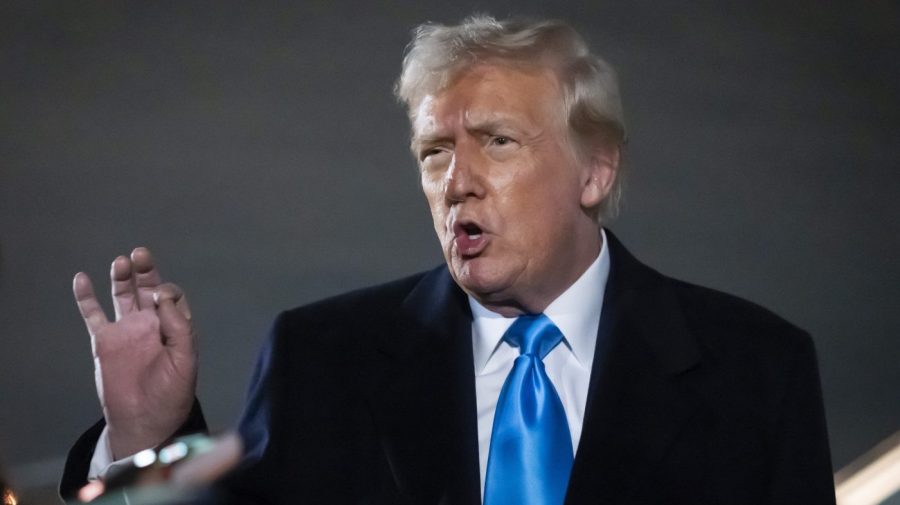
President Trump is expected to sign an executive order Wednesday banning transgender athletes from competing in girls’ and women’s sports, the latest in a string of executive actions from the new administration to take aim at LGBTQ rights.
The order, which Trump is expected to sign Wednesday afternoon, coincides with National Girls and Women in Sports Day, which is recognized annually in February to celebrate the accomplishments of female athletes. The Women’s Sports Foundation, which co-founded National Girls and Women in Sports Day in 1987, has opposed categorical bans on transgender athletes, claiming such policies “limit opportunities and harm the development of both cisgender and transgender girls and women.”
The organization did not immediately return a request for comment on Trump’s forthcoming order.
On the campaign trail, Trump promised repeatedly to ban transgender athletes from sports if he were reelected. During a town hall event in Georgia in October, Trump signaled he would do so through an executive order.
“The president bans it,” Trump said in response to a question about how he would handle “the transgender issue” in women’s sports. “You just don’t let it happen. Not a big deal.”
Most Americans believe transgender athletes should not be allowed to compete on sports teams that match their gender identity, a 2023 Gallup poll found. According to AP VoteCast, a survey of 120,000 voters nationwide, more than half of voters in the 2024 elections — including a majority of Trump voters — said support for trans rights in government and society has gone too far.
The exact number of transgender athletes participating in school sports in the U.S. is unknown. While more than half of states have adopted policies to stop them from competing, lawmakers have often struggled to cite specific examples of trans athletes in their states.
In rejecting Utah’s 2022 transgender athlete ban, Republican Gov. Spencer Cox wrote in a veto message that the state’s high school activities association had identified only four trans student-athletes that year, none of them the subject of complaints from students, families or administrators.
“Four kids and only one of them playing girls sports. That’s what all of this is about,” Cox wrote at the time. “Four kids who aren’t dominating or winning trophies or taking scholarships. Four kids who are just trying to find some friends and feel like they are a part of something. Four kids trying to get through each day.”
“Rarely has so much fear and anger been directed at so few,” he added.
In December, NCAA President Charlie Baker, a former Republican governor of Massachusetts, told a Senate panel that there are fewer than 10 transgender athletes he is aware of who currently compete in college sports, accounting for less than .002 percent of NCAA athletes nationwide.
Baker, who has faced mounting pressure from Republicans and conservative organizations to ban transgender athletes from college sports, said he would not adopt such a policy because federal courts have consistently sided with participation, but he would be open to with Congress to create a “federal standard” for eligibility.
The National Association of Intercollegiate Athletics, which oversees collegiate sports at 241 mostly small colleges across the country, approved a policy barring most transgender women from competition in April.
House Republicans, with support from two Democrats, passed legislation in January to ban transgender athletes from competing in women’s sports.
Wednesday’s executive order is the latest move from Trump and his administration to roll back transgender rights.
The president, during his first few days back in office, signed orders declaring the government recognizes only two sexes, barring transgender people from serving openly in the military, threatening funding for schools that teach “radical gender ideology” and curbing federal support for gender-affirming care for transgender young people.
Brett Samuels contributed.











